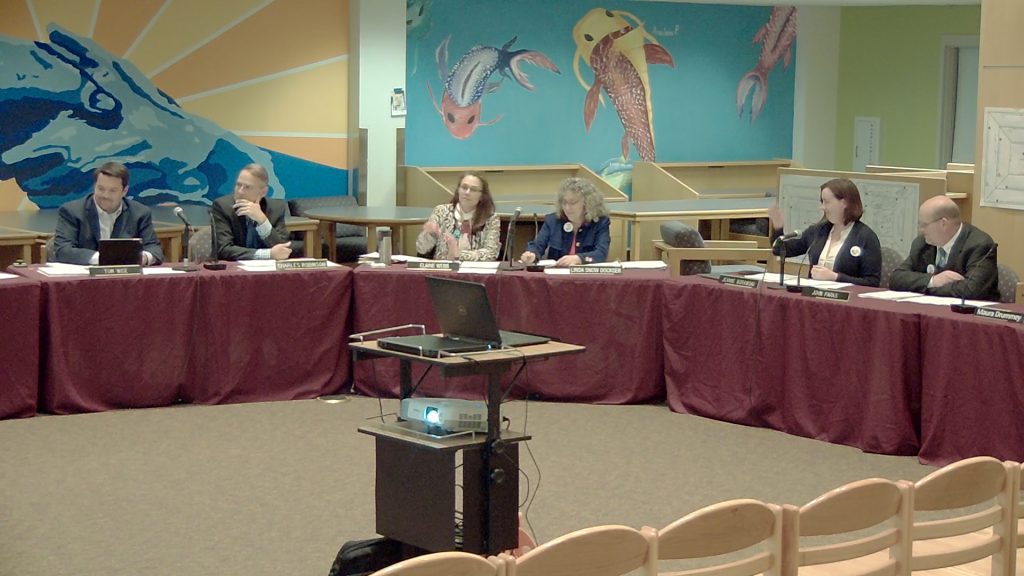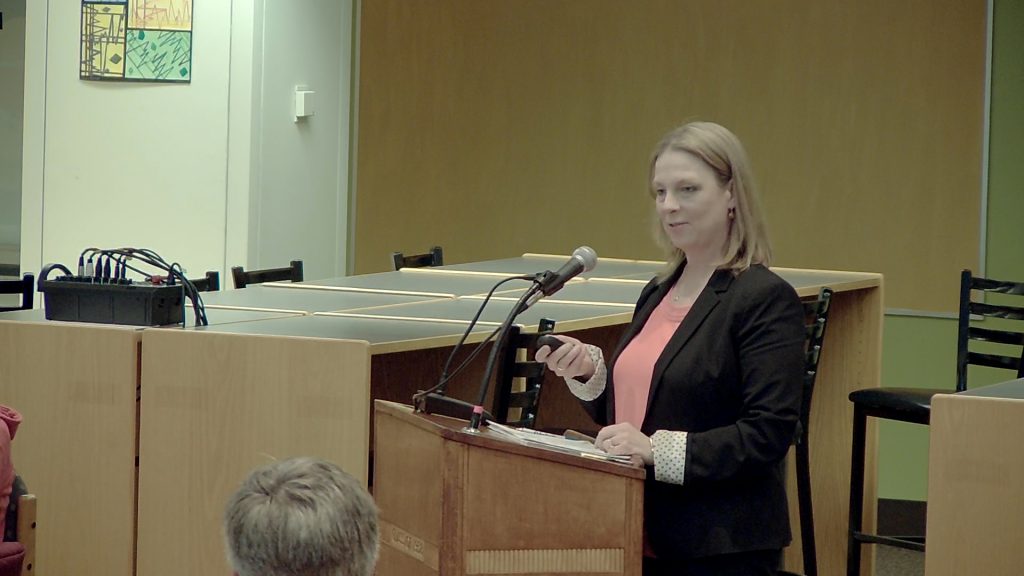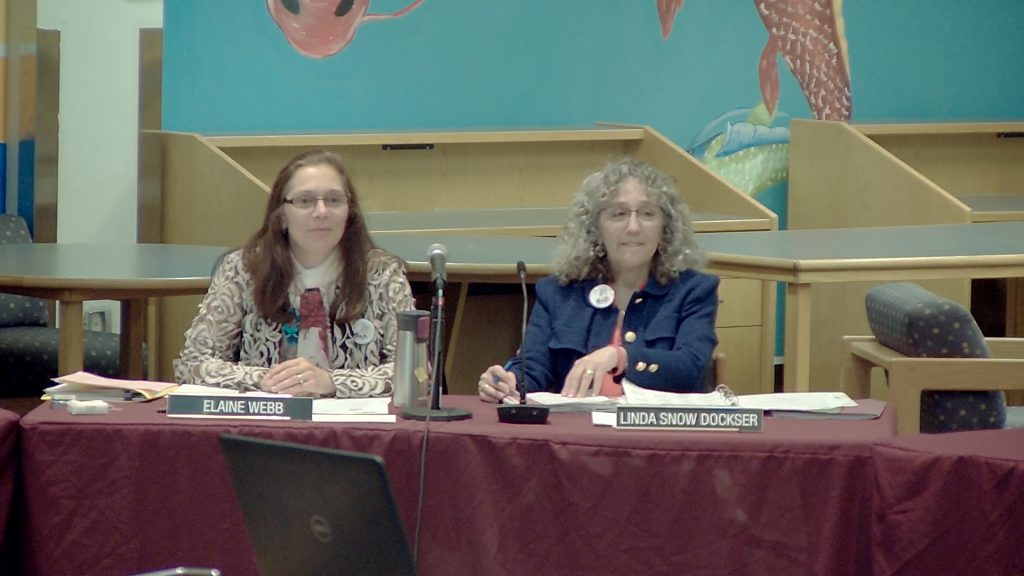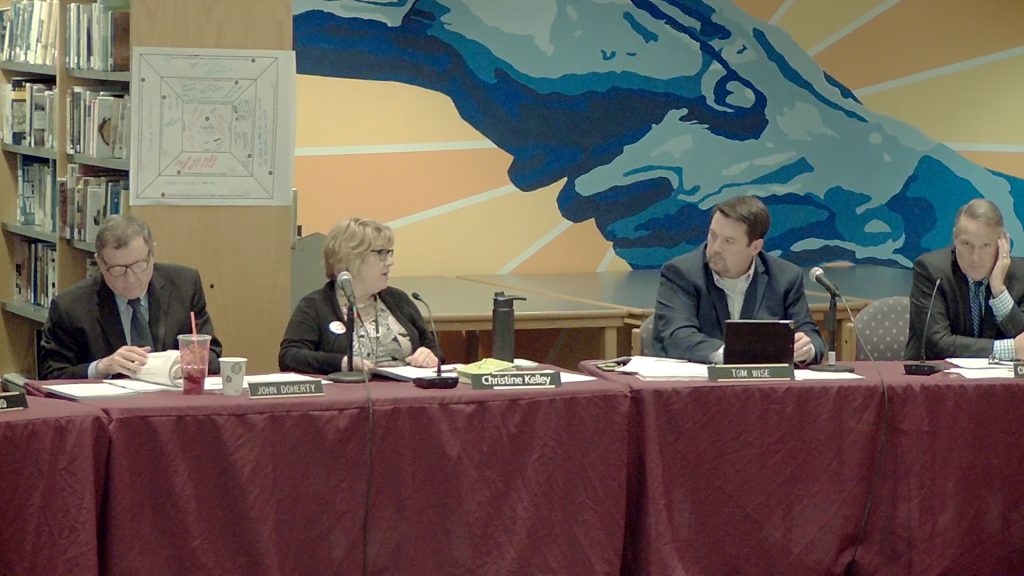 June 17 will be the final day of school this year for the Reading Public Schools as a result of a 6-0 vote of the School Committee on May 9. Questions have been raised about this date as it is a Monday, which is an odd day of the week for the last day of school. Superintendent of Schools John Doherty shared that questions had been asked about adding hours to some days in order to change the date, but he explained to the committee that Reading has only had one snow day this year and that by regulation they must have 180 days in the school year, making June 17 the 180th day. The day will be a half-day for students, but a full day for teachers and staff.
June 17 will be the final day of school this year for the Reading Public Schools as a result of a 6-0 vote of the School Committee on May 9. Questions have been raised about this date as it is a Monday, which is an odd day of the week for the last day of school. Superintendent of Schools John Doherty shared that questions had been asked about adding hours to some days in order to change the date, but he explained to the committee that Reading has only had one snow day this year and that by regulation they must have 180 days in the school year, making June 17 the 180th day. The day will be a half-day for students, but a full day for teachers and staff.
 Reading Memorial High School (RMHS) principal Kathleen Boynton gave the committee an update on the New England Association of Schools and Colleges (NEASC) accreditation process for the high school. As reported to the committee in the fall, the self-assessment report and NEASC visit had been completed in November. The full report from NEASC arrived in late January. Boynton was pleased that the NEASC ratings of foundational elements matched those on the self-study which had been completed over a one and a half year period. “It confirms the honesty of the process,” Boynton declared.
Reading Memorial High School (RMHS) principal Kathleen Boynton gave the committee an update on the New England Association of Schools and Colleges (NEASC) accreditation process for the high school. As reported to the committee in the fall, the self-assessment report and NEASC visit had been completed in November. The full report from NEASC arrived in late January. Boynton was pleased that the NEASC ratings of foundational elements matched those on the self-study which had been completed over a one and a half year period. “It confirms the honesty of the process,” Boynton declared.
The high school was commended in several areas including the diversity of experiences available to students, the sense of pride in the school, tiered supports for students, the variety of assessments, and the condition and maintenance of the building. Noted areas for growth include the need for written documents for curriculum consistency, a document establishing a “Vision of the Graduate,” continuing to build a positive and respectful culture, and differentiation of instruction coinciding with the collapse of academic levels.
As a result of these findings NEASC recommended that RMHS do the following:
- Develop a multi-year district technology plan,
- Develop and implement a cohesive referral process for students in need of intervention,
- Additional transparency regarding the allocation of school resources, specifically the building-based budget,
- Create ways to find more collaborative time for teachers, especially those who team-teach courses.
Because of these recommendations, Boynton shared several “next steps” that will be taken including aligning the new school improvement plan with the recommendations, finishing the RMHS curriculum guides by the end of June, engaging in a curriculum review cycle, development of curriculum maps, and preparation for the 2020 decennial visit by NEASC.
 Committee member Jeanne Borawski asked Boynton about plans for developing a respectful culture in the school. Boynton responded by suggesting that starting with “the little things” was the way to begin. Conversations regarding the “Pulse of RMHS” had already begun for students and staff, she has developed a weekly staff newsletter to keep faculty informed about what is occurring around the school, agendas for meetings will be clear and concise, she also has been working with the student council and other organizations regarding “listening to people’s stories.” Member Thomas Wise asked about the School Advisory Council’s participation in the self-study. Boynton responded that most of that work was done prior to her arrival at RMHS, but that she has shared the results of the self-study report and the NEASC report with the group. Once the decennial visit is concluded, the accreditation process will not have to be completed again for ten years.
Committee member Jeanne Borawski asked Boynton about plans for developing a respectful culture in the school. Boynton responded by suggesting that starting with “the little things” was the way to begin. Conversations regarding the “Pulse of RMHS” had already begun for students and staff, she has developed a weekly staff newsletter to keep faculty informed about what is occurring around the school, agendas for meetings will be clear and concise, she also has been working with the student council and other organizations regarding “listening to people’s stories.” Member Thomas Wise asked about the School Advisory Council’s participation in the self-study. Boynton responded that most of that work was done prior to her arrival at RMHS, but that she has shared the results of the self-study report and the NEASC report with the group. Once the decennial visit is concluded, the accreditation process will not have to be completed again for ten years.
Boynton also reported on efforts relating to the new later start time for RMHS next year. She shared that the cafeteria would be open at 7:30 am for students who need to arrive early and that breakfast will be served at 7:45 am. Students will need to remain in common areas until 8:15 am unless they have a specific appointment with a teacher. She and the other administrative staff will supervise the common areas for the first several weeks of school. Boynton is working with the PTO and with staff to determine if the library could be open up to a couple of times a week as well. In relation to athletic practices and other after-school activities, she remains committed to not simply adding another hour to the end of the day for students, but adjusting “how things are done.” Assistant Superintendent Christine Kelly reported that though they have not heard many concerns regarding the impact on families as a result of the change she believes that there will be some. “Does it affect some families? Absolutely. Will we do everything we can to help those families? Absolutely,” Kelly affirmed.
 The School Committee voted 6-0 not to participate in school choice for the 2019-2020 school year on the basis of projected enrollment. It also began the Superintendent’s annual evaluation process. Members will fill out individual evaluations by May 24, then schedule one-on-one appointments with Doherty to review their draft with the superintendent. The final drafts of the reviews will be submitted to Borawski who will compile the results. The final document will be made public in the School Committee packet when completed on or around June 24. The committee will not see the final document prior to it being made public. Individual members will also not see other member’s comments and ratings until that time. The School Committee will discuss and approve the evaluation report at its June 27 meeting.
The School Committee voted 6-0 not to participate in school choice for the 2019-2020 school year on the basis of projected enrollment. It also began the Superintendent’s annual evaluation process. Members will fill out individual evaluations by May 24, then schedule one-on-one appointments with Doherty to review their draft with the superintendent. The final drafts of the reviews will be submitted to Borawski who will compile the results. The final document will be made public in the School Committee packet when completed on or around June 24. The committee will not see the final document prior to it being made public. Individual members will also not see other member’s comments and ratings until that time. The School Committee will discuss and approve the evaluation report at its June 27 meeting.
The School Committee adjourned at 9:50 pm.
